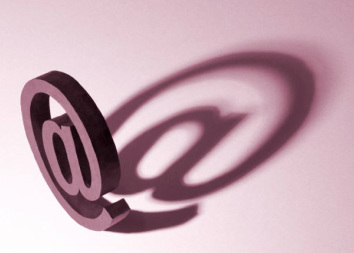My work with educational leaders in BC suggests the answer is a resounding yes.
David Rock recently compared the invention of the automobile with the onset of smartphones and tablets.
When the motorized buggy first came upon the scene they were no rules of the road, no speed limits and very little experience in navigating this new technology. The early adopters enjoyed their new found freedom but drove at a
speeds beyond which they could handle, resulting in constant accidents and mishaps. Today the use of smartphones and tablets are creating similar problems . The excitement and advantage of always being on, of having 24/7 access to information and contacts, and the ability to respond at any at any time has created a new set of accidents.The intrusive nature of technology and the inability to focus is insidious and is creating a new form of stress. For today's leaders the separation of work time and family time is becoming more blurred and the ability to authentically connect with others is at risk.
Leslie Perlow, a Harvard Business School professor , in Sleeping With Your Smartphone, contends
that the cycle of responsiveness, both personally and organizationally, is largely self-imposed.
This culture of instant responsiveness where everybody feels they must be connected 24 /7 leads to the belief that to succeed one has to be incredibly responsive.This, in turn, leads to adapting and adjusting to make sure that you are always accessible .The result is that you will be available more often than you choose, which creates the expectation in others that they can count on you to always be available. Thus, the self-imposed pressure to respond reinforces itself.
Most of the educational leaders that I work with believe the demands of the job are increasing significantly. Some of them are physically and emotionally exhausted and a few are running on empty. Leadership today requires breakthrough thinking in order to create the conditions for 21st-century learning. This breakthrough cannot occur when people are exhausted. Organizations and individuals must learn to break the cycle of self-imposed
instant responsiveness and eliminate the habit of 24 /7 connectivity.
One of the most effective ways of regaining control of your day ( and eventually your life) is to turn off your email notification system and social media alerts. This is easy but not simple, since many people show signs of addiction to their technology. In a workshop I conduct for educational leaders I recently asked everyone to turn off their smart phones- not just put it on” vibrate” but to turn the system entirely off. It was fascinating to see the various degrees of anxiety that this produced. In fact, one principal mentioned to me that he suffers from “phantom vibration syndrome”, the feeling that his smart phone is vibrating even though it even though it is actualy off.
Talk about a sign of technology overload. We are so used to responding to our emails, tweets, dings and bings that we now routinely react like Pavlov's dogs. Maintaining metaphoric unity, the smartphone is like "electronic catnip”.
Just try to resist the temptation of your smartphone's beep!
if you can't quit cold turkey, try turning off your notifications when you get home after work. You might be surprised how your undivided attention affects your family. You may eventually graduate to shutting off your electronics entirerly when you get home. At work try disconnecting from your technology when your task requires intense concentration and focus and when you must have an important conversation with a colleague.
In one of my favorite Paul Simon songs, The boy in the bubble, he mentions that” these are the days of lasers in the jungle” and that we are bombarded with ” staccato signals of constant information.” Until we take some corrective action those signals will become louder and more frequent.
Try turning off your email notification and see if this will help you take control of your technology rather than it
controlling you.You might just feel more clarity and focus during your work day. It just may also help to break the self-imposed condition of instant responsiveness and give you your life back. If we don’t do something soon the technologies that were designed to liberate us may soon enslave us.

 RSS Feed
RSS Feed
